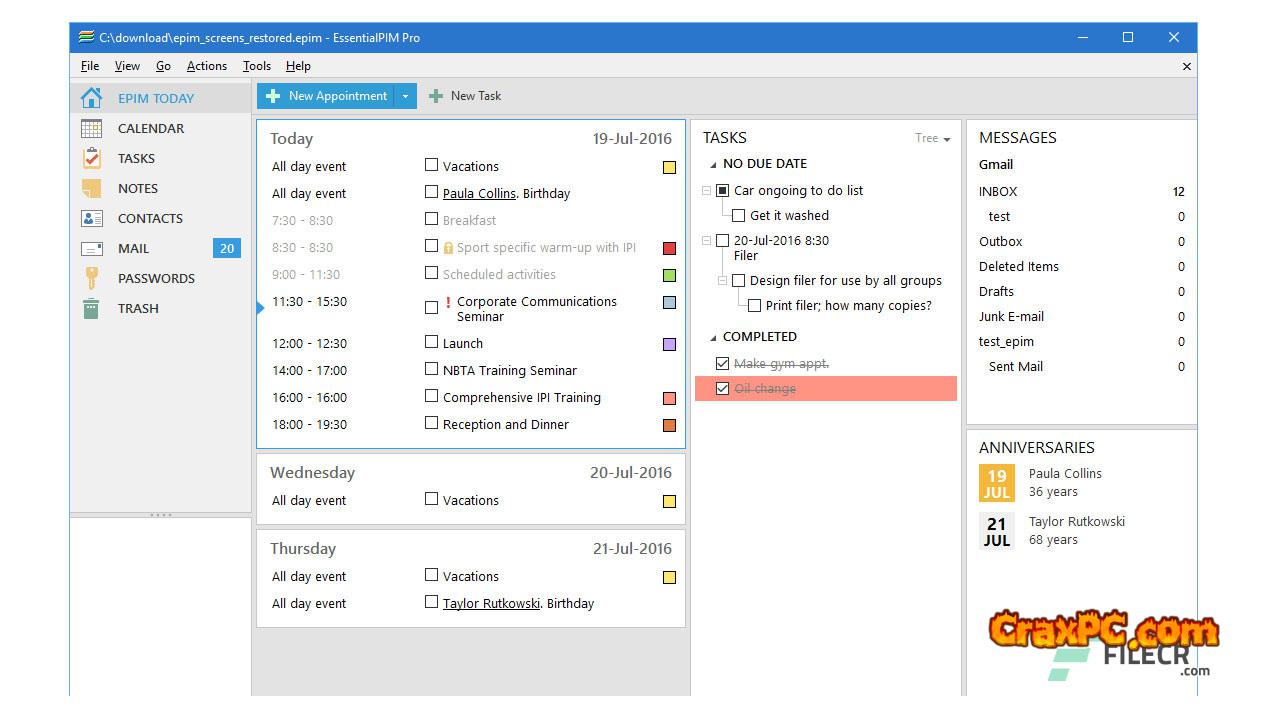You may manage appointments, tasks, notes, contacts, password entries, and email messages across several platforms and cloud applications by downloading the full edition of EssentialPIM Pro Business for free on a Windows PC.
An overview of EssentialPIM Pro
A personal information manager called EssentialPIM Pro makes it simple to handle contacts, emails, notes, to-do lists, appointments, and password inputs. It is a reasonably priced Outlook substitute.
EssentialPIM Pro comes with built-in email support, as well as speed, portability, an easy-to-use interface, and the ability to synchronize all of your data with virtually any online service (Google, iCloud, Toodledo, SyncML, CalDAV, etc.) and Microsoft Outlook.
Data from EssentialPIM is kept in a scalable, quick, and safe database. It is quickly searchable and cross-linked. EPIM components can quickly navigate between related pieces by referencing one another. Different tag items are allowed and treated as a single project with full tagging functionality.
An advanced, industry-standard AES (Rijndael) 256-bit key is used to encrypt your data. able to configure fine-grained access to distinct modules. Cloud service synchronization is secured by SSL, the same technology that powers online banking.
EssentialPIM Pro’s features
Simple setup that just requires ten minutes or less
EssentialPIM Pro Business Server can operate on almost any computer and any version of Windows, negating the requirement for a dedicated server.
Businesses can access all of EssentialPIM Pro’s capabilities.
Simple sharing of notes, tasks, contacts, calendars, and password entries
The ability to work while traveling and then synchronize with the EPIM server to allow other users to access all new data
An infinite quantity of users
Adaptable user rights hierarchy with read-only and eyes-only elements
System specifications and technical information
Operating systems supported: Windows 11, Windows 10, Windows 8.1, and Windows 7.
RAM: 2 GB of RAM (memory); 4 GB is advised.
200 MB or more of free hard disk space




